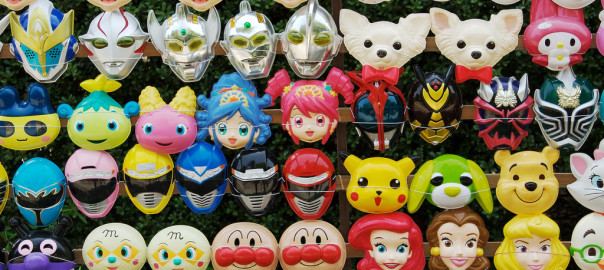Last week, I wrote about the how the roles we play at work can influence our self-identity, focusing on a couple of “bad guy” roles like the one played by Wreck-It Ralph. But that’s not the only role that can have a negative influence on our self-image.
Roles We Play
The Drone: Doing the same thing, over and over, day after day, can drain you of energy and creativity, especially when you have little control over the details of your work. Your mental and physical exhaustion can spill over into the rest of your life, and your attitude can become one of simply enduring the time you have left. Once, while working a particular difficult and tedious one summer in college, I kept myself entertained – if you can call it that – by mentally calculating how much money I was making every minute I worked and keeping a running tab on my pay. Maybe that’s fine for a summer job, but what happens when you’ve been doing that for years?
The Doormat: Like the Drone, the Doormat has little power over his work – at least, any power to say “no” about any part of his work. When any conflict arises, the Doormat expects to simply roll over and allow the other side to win. It might be the boss, customers, coworkers, clients – it doesn’t really matter. If the Doormat has any opinions, he’s expected to keep them to himself and say “yes” to whatever is being proposed.
The Hero: Isn’t it good to be the Hero? Sometimes, but playing the Hero is addictive. It feels good to be the one person who knows how to fix that annoying problem, the one person who can do the task in just the right way, the one person who can swoop in at the last minute after everyone else has failed. At first, you receive praise and credit for your good work. If you’re not careful, though, you can become hooked on being that “one person.” Rather than teaching others how to solve the problem, coaching others to take on more responsibility, or improving the system so that last-minute heroism isn’t an integral part of keeping things running, you grow to love your “indispensible” role. Not only do you keep others from growing, but you also prevent yourself from growing.
The Suffering Servant: The Hero with an extra dose of self-pity.
Atlas: In Greek mythology, Atlas held the world on his shoulders as a punishment imposed on him by the gods.[1] The modern Atlas, however, bears the world as a self-imposed punishment. Like the Hero, the Atlas sees himself as the only one who can save the day; unlike the Hero, the Atlas takes this attitude toward every aspect of his work. Atlas believes that, should he take his attention off of anything for even a second, it would all fall apart. As a result, he bears a crushing burden nearly all the time – almost as crushing, in fact, as the burden borne by those who work for him.
The Gatekeeper: The Gatekeeper is the opposite of the Doormat and the twisted stepbrother of the Hero. He’s the one who is there to stop your forward progress until he has given his permission – which happens only after all the appropriate paperwork has been completed, the required approvals have been sought, and the minimum waiting period has passed. Where the Doormat has to said “yes” all the time, the Gatekeeper gets to say “no” as often as he likes. As with the Hero, this is a difficult power to give up, and Gatekeepers may find themselves inventing new gates to keep.
The Screw-Up: Like the song says, sometimes it isn’t your day, your week, your month, or even your year. Everything you touch seems to go wrong. Even it’s not your fault, mistakes get attributed to you, just because they so often are your fault. When most of your day is spent dealing with failure – or anticipating future failure – it can easily become part of your self-identity.
Resisting the Roles
When work is your identity, if you are successful it goes to your head, if you are a failure it goes to your heart.
— Timothy Keller (1950-2023) (@timkellernyc) August 24, 2013
How do we avoid the trap of seeing ourselves in terms of our role at work? Further, how do we fully participate in our work without becoming a mere role?
Root your identity somewhere other than your work. In Tim Keller’s tweet above, the word “when” is the key to the whole statement. Root your identity outside of work, and it becomes much easier to keep your self separate from your role at work.
Practice good posture. In Culture Making, Andy Crouch writes that several responses to the culture around us – condemning it, critiquing it, copying it – are perfectly acceptable gestures that we ought to occasionally practice, but terrible postures if we adopt them permanently. The same is true of our roles at work. Sometimes, it’s appropriate to be the Gatekeeper or Hero. When it’s our default position, regardless of the circumstance, something has gone wrong.
Photo credit: Patrick via Flickr
- Ayn Rand used this image for her novel Atlas Shrugged, in which she imagines that those who make the world run (industrialists, entreprenuers, etc., in her concepton) turn their backs on society and chaos ensues. ↩

